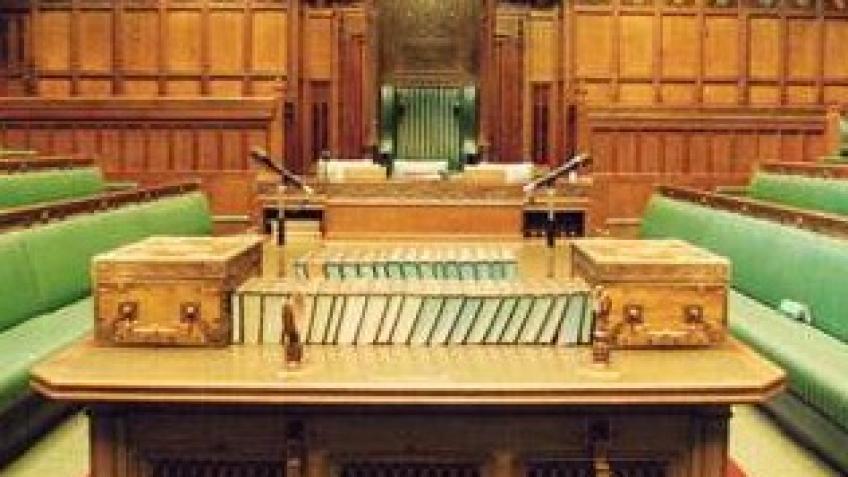I have not voted for 30 years. It has always been pointless, as my vote was always discarded and ignored. My house was in a tribal area, where the same party always won. It is the same for millions of our citizens at every general election. Unless you vote for the winning candidate then you need not have bothered voting - your vote has no effect on the membership of the House of Commons.
My project challenges our "First Past the Post" winner takes all voting system, and I shall argue in the High Court that the system is not compatible with our human rights. If the court agrees with me, they can issue a Declaration of Incompatibility and the matter is then passed back to Parliament for resolution. The objective is proportional representation, so that all of our votes count, and affect the composition of the House of Commons. So, if a party gets 15% of the votes overall, they will get 15% of the seats in the House of Commons.
The case I need to fund was launched on the 17th January 2019 along with an application for help with fees. As it is a High Court action, the fees are likely to be substantial.
It is my belief that well-meaning organisations will not get anywhere by getting signatures on petitions. Getting signatures on petitions did not get women the vote. The politicians who run the Labour and Conservative parties have opposed proportional representation for a hundred years in order to preserve their grip on power. I believe that it is only by taking the fight all the way to the Supreme Court can we succeed. We need our clever judges to rise to the challenge and put an end to this offensive system that brings shame on our country even now in the 21st Century.
Below, I set out a summary of the legal technicalities followed by some extreme examples of the perverse nature of our system of voting and the perverse outcomes it gives rise to.
Here is a summary of the legal technicalities:
The challenge seeks a Declaration of Incompatibility under Section 4 of the Human Rights Act 1998 between two statutes and the underlying rationale is that the application of the present system insofar as it selects winning candidates by relative majority unsupported by statute law is of questionable legitimacy and a historical aberration based on an erroneous assumption by a Royal Commission in 1910. Statute law was set out in the Ballot Act of 1872 and requires an absolute majority, not a relative majority. Of potentially greater importance is the recent case of Riza & Others v Bulgaria ECtHR 2015 where the European Court of Human Rights asserted that under under the ECHR equivalent of our UK Human Rights Act 1998 Protocol 1 Article 3 each voter must be able to see his or her vote affecting the composition of the legislature. This is an active human right that is being denied by the electoral system of the United Kingdom.
1992, 2010, 2015, and Old Sarum
In the General Election of 1992, in the constituency of Inverness, Nairn, and Lochaber, the winning candidate Sir Russell Johnston received 13,258 votes. The second-placed candidate received 12,800 votes. The third-placed candidate received 12,562 votes. The fourth-placed candidate received 11,517 votes. The fifth-placed candidate received 766 votes. Lined up against Sir Russell Johnston’s 13,258 votes were 37,645 electors where the opinion of the people in the choice of the legislature for this constituency was clearly not Sir Russell Johnston. Yet still he was legally “the candidate to whom the majority of votes has been given”. Even if all of the 37,645 voters detest the winner, his party, his values, and everything he stands for, it makes no difference.
In the 2010 general election, two-thirds of constituencies returned candidates with minority support. The opinion of the people in the choice of the legislature is thus thwarted, and the opinion of the self-interested men who run the Conservative and Labour parties prevails, as it always does, to the exclusion of everyone else and to the exclusion of democracy itself. Millions of votes are wasted, ignored, and discarded, millions of people effectively disenfranchised.
In the 2015 general election, the combined votes for the Green Party and the United Kingdom Independence Party was a 16.4% share of the vote. They were rewarded with one MP each. The winning party, the Conservatives, received a 36.9% share of the vote. They were rewarded with 331 MP’s. If the election had been conducted under a representative (proportional) system, the Greens and UKIP between them would have been awarded 106 MP’s and the Conservatives 239 MP’s. It should come as no surprise to anyone that the British Conservative Party has been opposed to the introduction of a representative (proportional) system of voting in general elections for a hundred years.
Old Sarum
It is not difficult to see the shadow of Old Sarum in our base and offensive First Past the Post electoral system. She is preserved, protected, and defended by the powerful and persuasive self-interested politicians who run the Labour and Conservative Parties. They do so in the interests of their parties, not the national interest (Old Sarum was an unpopulated hill of mud that in the early 19th century returned two MP's to parliament).
